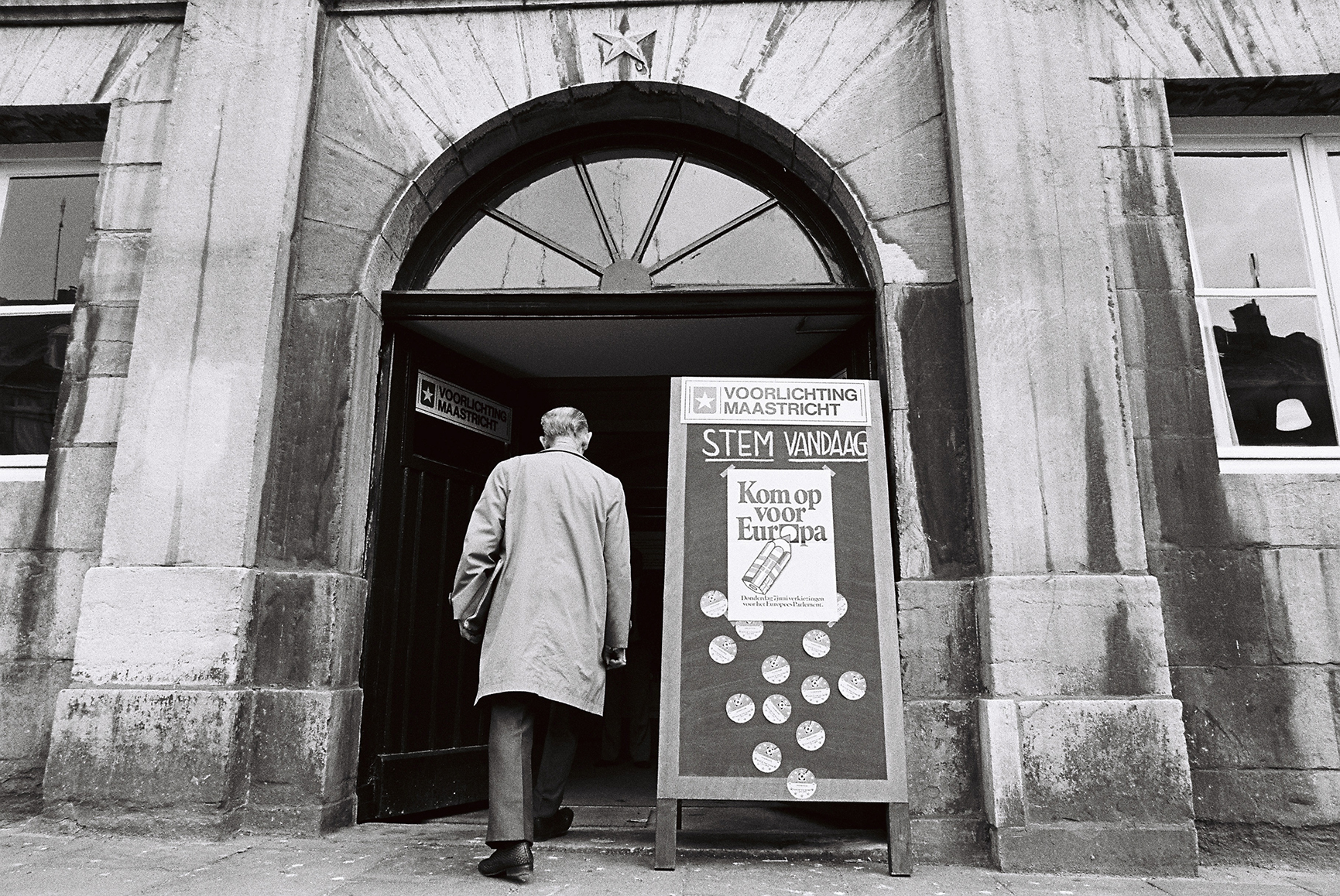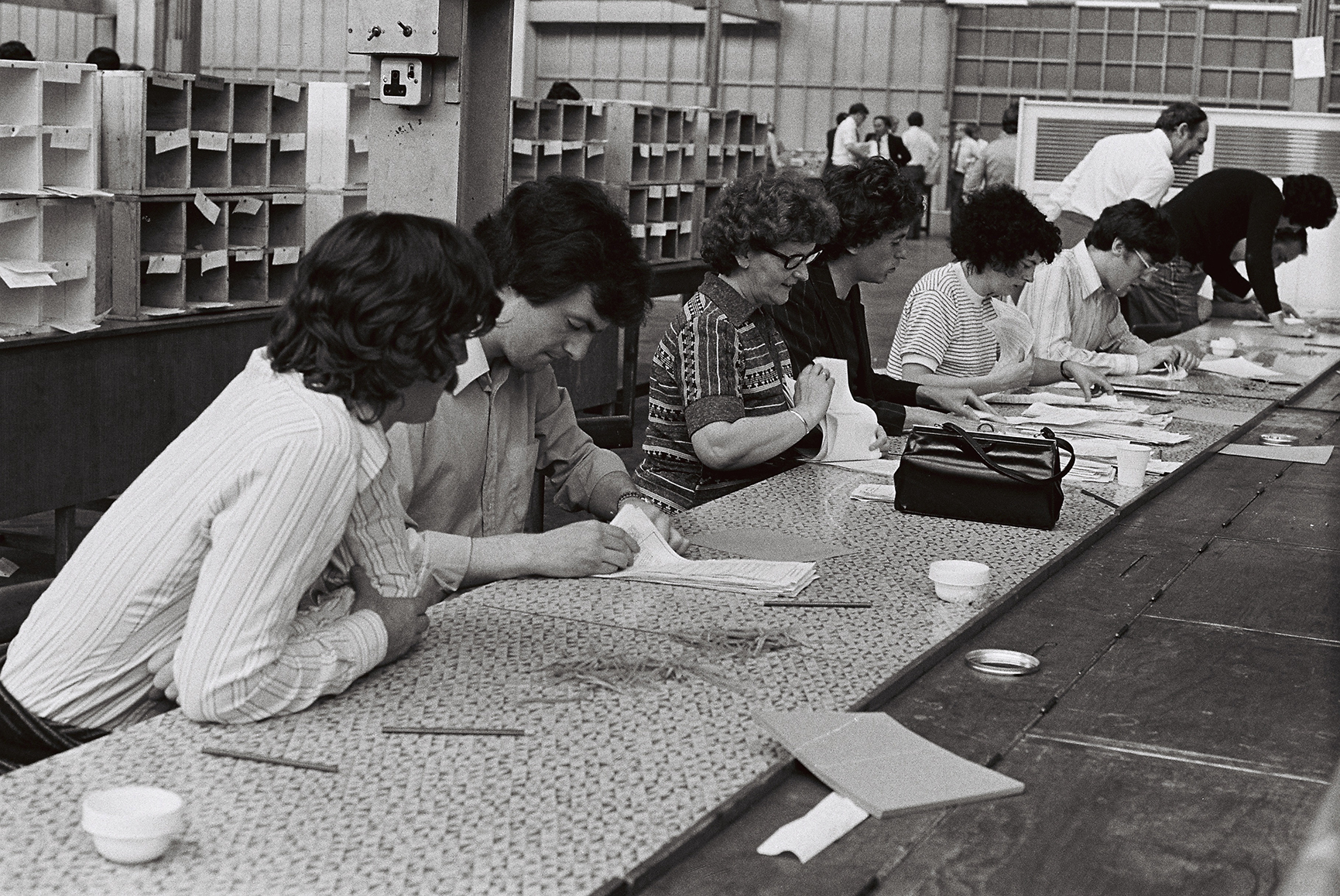The role of the European Parliament during the first parliamentary term
Since June 1979, EU citizens have directly elected Members of the European Parliament for a five-year term and the European Parliament has gradually gained more influence in legislative and budgetary decisions. An important event that demonstrates the budgetary powers of the European Parliament occurred in December 1979 when it decided, by 288 votes to 64 with one abstention, that the Council’s draft budget for 1980 was unacceptable and therefore rejected it.
 "Kom op voor Europa" - Stand up for Europe - a campaign poster for the European Elections in 1979, the world's first international elections © European Communities, 1979
"Kom op voor Europa" - Stand up for Europe - a campaign poster for the European Elections in 1979, the world's first international elections © European Communities, 1979
The Parliament has a significant role in analysing and discussing the social and economic problems of the European Community and MEPs play a decisive role in the relations with the electors. As President Dankert pointed out in his inaugural speech in 1982, MEPs have to promote the Parliament’s activities and to find solutions for unemployment, human rights, regional problems, stimulation of economic growth or the reform of the Common Agricultural Policy.
During this period, discussions on a Treaty establishing a European Union and the transfer of new competences to the European level began, with a view to continuing and reviving the democratic unification of Europe.
Composition of the European Parliament 1979-1984
Here you can find the list of the Parliament's composition of the first parliamentary term.
What’s in the archives?
The fonds contain organised files of all the legislative activity of the European Parliament after the first direct elections (marked European Parliament - first parliamentary term - 1979-1984).
In view of the scope of the Treaties and the European Parliament’s internal structure, most files relate to the work of parliamentary committees (parliamentary reports and meeting minutes) and the proceedings of plenary sessions.
 'Eurovotes' being counted in Dublin during the 1979 European elections © European Communities, 1979
'Eurovotes' being counted in Dublin during the 1979 European elections © European Communities, 1979
The most common procedure was parliamentary reports. Based on a document from the executive bodies or an internal Parliament initiative, a parliamentary committee would propose a report to the plenary session for approval or rejection by the Parliament. Other procedures described in the Rules of Procedure also gained ground over time, such as parliamentary questions.
For the period 1979-1984, the topics involved are connected to the scope of the Treaties, from atomic energy and its civil uses and the various aspects of the single market. These topics include:
- Political and institutional affairs
- Trade policy and economic cooperation with countries outside the European Community
- Agriculture
- Social policy
- Internal market of the Community (free movement of goods, people, services and capital)
- Long-term economic policy, financial matters and investments
- Associations of overseas countries and territories
- Regional policy
- Women rights
- Transport
- Energy policy
- Scientific and technical research
- Security, occupational health and health protection
Organisation of the fonds
The fonds are divided into the following terms:
• The European Parliament before the direct elections (1958-1979)
• First parliamentary term (1979-1984)
• Second parliamentary term (1984-1989)
• Third parliamentary term (1989-1994)
• Fourth parliamentary term (1994-1999)
• Fifth parliamentary term (1999-2004)
• Sixth parliamentary term (2004-2009)
• Seventh parliamentary term (2009-2014)
• Eighth parliamentary term (2014-2019)